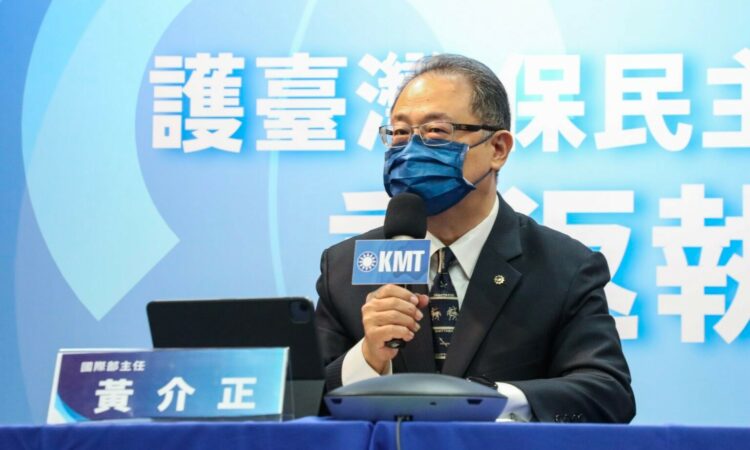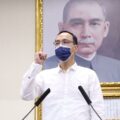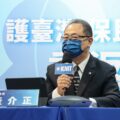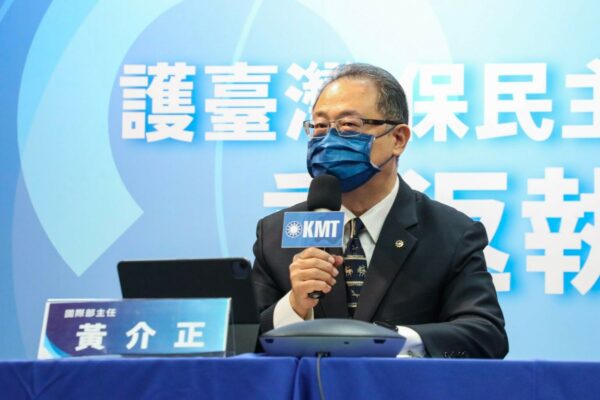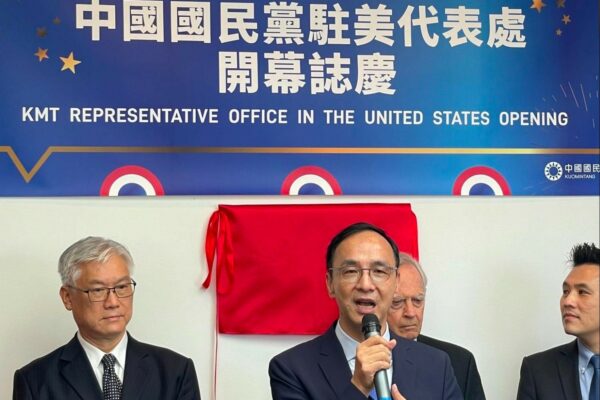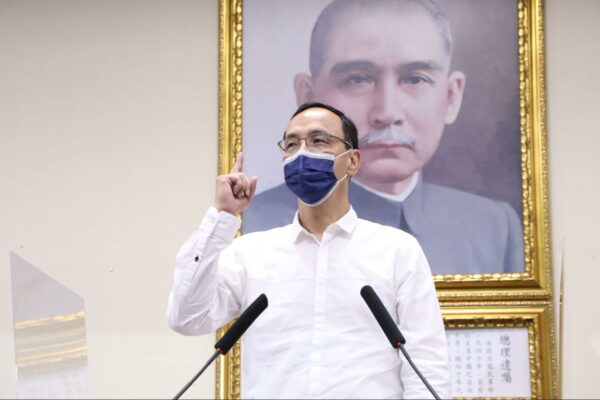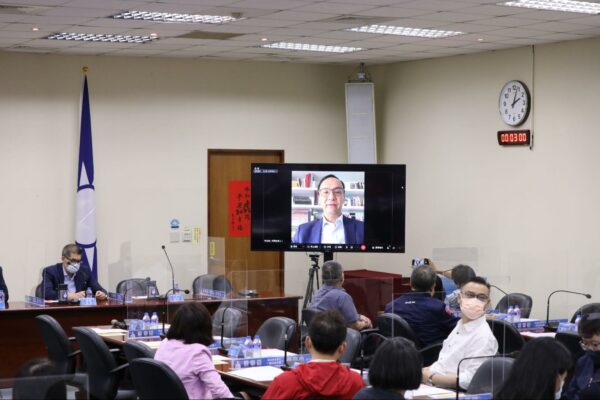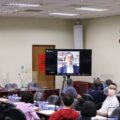Japan’s Deputy Prime Minister & Minister of Finance Taro Aso stated that if the Chinese Communist Party invades Taiwan, the Japanese government will consider it to be a “survival crisis” stipulated on the Security Guarantee Act, where they will exercise the “limited collective self-defense rights.” In response to this statement, the Kuomintang believes that the current situation in the Taiwan Strait is already affected by both sides. The DPP government needs to make its national positioning and cross-Strait relations clear in order to avoid intensifying regional tensions. It should also oppose any use of force on the premise that the sovereignty and rights of the Republic of China must not be violated or intruded upon. Finally, any measures conducive to regional stability should be welcomed.
Japan’s Deputy Prime Minister and Minister of Finance Taro Aso gave a speech in Tokyo on July 5th stating that if the Chinese Communist Party invades Taiwan, the Japanese government will consider it to be a “survival crisis” related to the Security Act, and would consider exercising the “limited collective self-defense right”, adding that the United States will need to jointly defend Taiwan with Japan. Kurt Campbell, Indo-Pacific Affairs Coordinator at the National Security Council under the Biden administration, participated in an online dialogue with a think tank in New York in July, where he stated that the United States supports the maintenance of close, unofficial relations with Taiwan while also supporting Taiwan’s international dignity. However, he emphasize that the United States does not support Taiwan independence.
The Kuomintang believes that the “status quo” of the Taiwan Strait implies that the possibility of conflict is increasing. The situation today is undoubtedly worse than before. If a war breaks out in the Taiwan Strait, it will be a loss for all sides. President Tsai Ing-wen previously said that the status quo should be maintained, but her policy of assisting in maintaining the status quo across the Taiwan Strait when she first took office in May 2016 has already failed. One of the core policy guiding principles that the Kuomintang adheres to is peace across the Strait and avoiding war in the Taiwan Strait. The Kuomintang advocates for peace and avoidance of war, not capitulationism, but gives priority to the people of Taiwan and negotiating on equal footing across the Strait in an attempt to manage and resolve conflicts for all.
The Kuomintang requires the DPP government to return to the Constitution of the Republic of China and the regulations on cross-Strait relations between people, such as the “1992 Consensus” or the political basis for cross-Strait dialogue consistent with its intentions. The Kuomintang also demands that the Chinese Communist Party should not dispatch military aircraft and ships to areas near Taiwan, let alone crowd out Taiwan in terms of international participation. This will prevent cross-Strait relations from deteriorating while assuring other countries of the situation in the Taiwan Strait, which is in the interests of most Asia-Pacific countries.
The Kuomintang points out that the Biden administration is continuing its past American stance and does not support Taiwan independence. Therefore, the DPP government should not take it lightly, and should realize the strong political signals behind it. The KMT also believes that US National Intelligence Director Haynes mentioned in her testimony to the US Congress as early as April that Taiwan’s firm move towards independence will be a rising challenge for the United States. Therefore, the DPP must honestly explain that in the past five years of administration and in the face of the huge influence of the United States and Mainland China, can the road of Taiwan independence be continued?
The KMT emphasizes that the DPP government must accurately interpret the current complex “China” policy of the United States to avoid wishful thinking of strategic misjudgments; the Biden administration emphasized to the Chinese Communist Party that “competition is competition, cooperation is cooperation, and confrontation is confrontation.” This is not just “anti-China”. Therefore, the DPP government should discard it’s short-term thinking and diplomatic operations, and face US “China” relations and cross-Strait relations in a serious and pragmatic manner.
The KMT also emphasizes that in the past, cross-Strait exchanges and cooperation, such as document verification, the ECFA, and the Joint Anti-crime Agreement, were all based on our dignity, when the government did not promote Taiwan independence, and cross-Strait officials handled political differences flexibly and practically. Therefore, under the KMT’s rule, it took into account the basic dignity of the country and did not promote any form of Taiwan independence. This is consistent with the position of the United States.
Finally, the Kuomintang would like to point out that the DPP has never given up on the goal of Taiwan independence. It not only erodes the political foundation and social consensus under the Republic of China’s Constitution, but also impacts the existing foundation of political dialogue between the two sides of the Taiwan Strait. It has also failed to win the trust of the United States and other countries that care about cross-Strait relations; the DPP is now the ruling party of the Republic of China, and Ms. Tsai Ing-wen is the president of the Republic of China, having declared that she would abide by the constitution. She should govern in accordance with the Constitution and maintain the stability of the Constitutional order.


